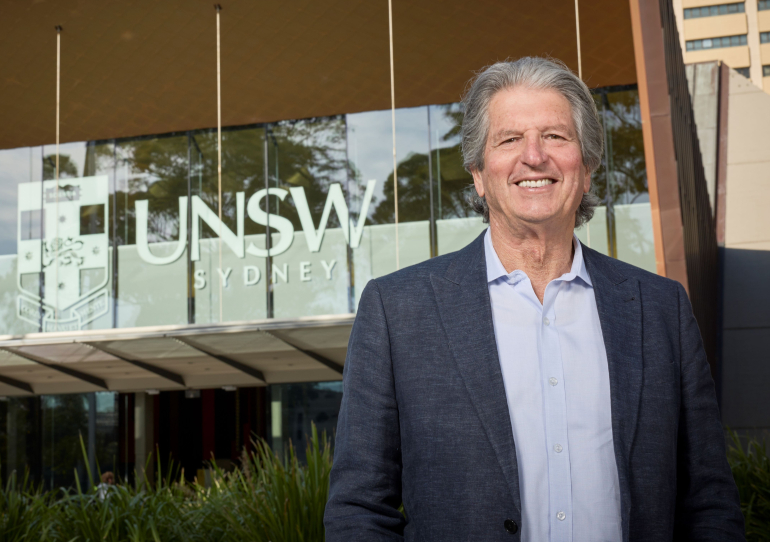UNSW Sydney’s world-leading silicon solar cell specialist Scientia Professor Martin Green has won the 2023 Leigh Ann Conn Prize for Renewable Energy. The prestigious prize is awarded by the University of Louisville in the United States for outstanding renewable energy ideas and achievements with proven global impact.
Prof. Green — often described as the "father of modern photovoltaics” — has been recognised for his pioneering and groundbreaking achievements in high efficiency silicon photovoltaics (converting light into electricity), as well as leading the invention and development of the passivated emitter and rear contact (PERC) solar cell. He first conceived the idea for PERC in 1983.
PERC technology improved the quality of both the top and rear surfaces of standard silicon solar cells, resulting in greater and more efficient energy generation than those that came before them. This allowed more electricity to be generated from sunlight, lowering costs and increasing the adoption of sustainable solar energy worldwide.
The technology breakthrough helped increase the conversion efficiency of standard solar cells by over 50 per cent in relative terms from 16.5 per cent in the early 1980s to 25 per cent in the early 2000s. Through successive improvements to cell design and fabrication, Prof. Green and his team at UNSW held the record for silicon cell efficiency for 30 of the past 40 years.
Read more: Australian solar pioneers win world's top engineering prize
Prof. Green said he is thrilled to be awarded the Leigh Ann Conn Prize. “From the start of my career, I was determined to do something that would make a difference in the world. I am very proud that, through the efforts of my team and countless others, we now have low-cost solar as a means for reducing the impact of climate change while, at the same time, reducing the cost of energy generation, something not widely thought possible only a decade ago.”
Development of the technology at UNSW also resulted in training a generation of students who, with Prof. Green’s support, applied their skills to establish solar cell manufacturing in Asia.
World solar cell domination
PERC currently dominates solar cell production worldwide. Together with Tunnel Oxide Passivated Contact (TOPCon) cells – first demonstrated by Prof. Green’s research group at UNSW – the cells account for more than 90 per cent of solar cells manufactured in the world today at a sales value exceeding US$100 billion.
UNSW’s acting Vice-Chancellor and President Professor George Williams congratulated Professor Green on winning the Prize.
“Martin is a brilliant engineer whose leadership and accomplishments have led to the creation and development of the world’s solar manufacturing industry. His life’s work benefits people around the globe every day and is arguably our biggest weapon to combat global warming and climate change. Everyone at UNSW is proud to celebrate this well-deserved honour with him,” Prof. Williams said.
Prof. Green will give a public lecture in Louisville in March 2024 about his award-winning work and achievements. He will receive the Conn Prize medal and $US50,000 prize at a formal ceremony.
“Professor Martin Green is a true pioneer in the field of photovoltaics,” said University of Louisville President Kim Schatzel, who will confer the award. “His work in solar cell technology is of great importance worldwide, and it is an honor to bestow upon him the Leigh Ann Conn Prize.”
The University of Louisville prize is named for the late daughter of Hank and Rebecca Conn, who were university alumni, supporters and the prize benefactors. Their vision to create a legacy in honor of Leigh Ann celebrates scientists with the fortitude, patience, and resiliency to endure renewable energy technology innovation and translation into the marketplace, where impact occurs.
